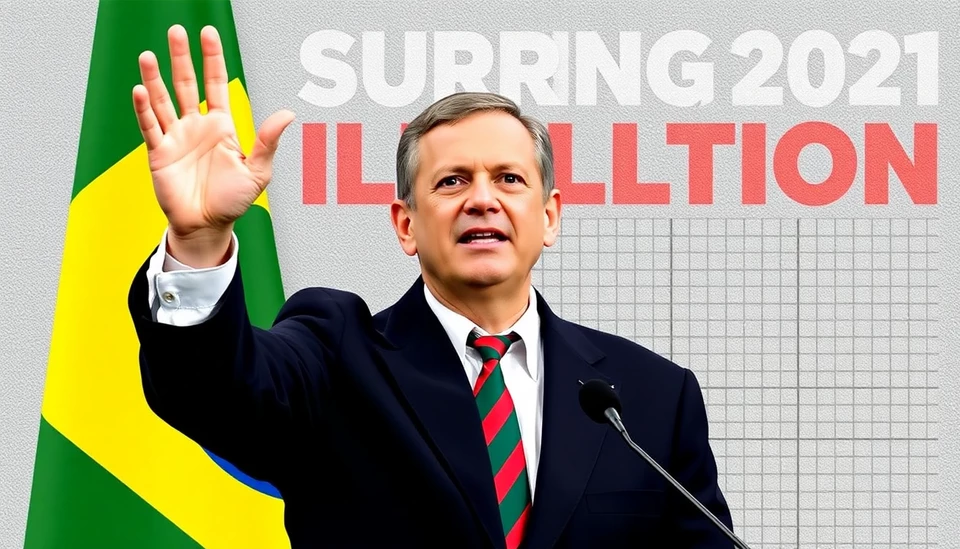
As Brazil grapples with soaring inflation rates, discontent among the populace is mounting towards President Luiz Inácio Lula da Silva's economic policies. The country has experienced a significant spike in prices, prompting citizens to question the effectiveness of Lula's strategies aimed at stabilizing the economy. With inflation reaching levels not seen in recent years, many Brazilians are feeling the pinch on their daily expenses, leading to widespread dissatisfaction and calls for policy reconsideration.
Recent reports indicate that inflation in Brazil has surged to an annual rate that surpasses the expectations of economists and government officials alike. This troubling trend has created a ripple effect, striking various sectors from food and housing to transportation. Consumers are particularly concerned as grocery bills and utility costs continue to ascend, making it harder for families to meet their basic needs.
Critics of Lula's administration are quick to highlight that the current economic turmoil stems from a combination of policy missteps and global economic pressures. Many blame the government's expansionary fiscal measures, which were initially designed to invigorate growth and improve social welfare, for inadvertently fueling inflation. The injection of substantial public funds into the economy, once seen as a potential lifeline, has contributed to skyrocketing demand while supply chains struggle to catch up, leading to higher prices across the board.
Furthermore, the recent rise in global commodity prices—particularly in energy and agricultural goods—has compounded the problem, leaving Brazilian consumers vulnerable as these costs trickle down. With resources becoming scarcer and pricier, many doubt the government's ability to rein in inflation without drastic measures that could further disrupt economic recovery.
A palpable sense of frustration is spreading among citizens, many of whom feel their purchasing power has dramatically diminished under the current administration. Lula’s popularity, which once surged due to his promise of equitable growth, is now being tested as he faces backlash for perceived inadequacies in managing the economy. Some Brazilians express concern that the current approach lacks the necessary urgency to address inflation effectively, leading to a weakening in confidence towards expert forecasts and government assurances.
The economic plight of many Brazilians fuels a growing discourse among political analysts and economists about the broader implications of Lula's policies. Some argue that without significant adjustments, the administration risks disillusioning a voter base that is already sensitive to the impacts of inflation. Calls for reforms are gaining traction, with various groups advocating for tightening fiscal policies and implementing targeted relief measures to alleviate the burdens faced by the average citizen.
As the inflation crisis unfolds, it remains to be seen how Lula's government will respond. The stakes are high, with potential ramifications not only for the current administration's credibility but also for the overall stability of Brazil's economy. Moving forward, the resolve of both the government and the citizens could shape the country's economic narrative and dictate the political landscape in the months to come.
In summary, with Brazil facing escalating inflation, Lula's economic policies are under intense scrutiny, as the population expresses concern over rising costs and the effectiveness of the government's response. As public sentiment increasingly turns critical, the administration's next moves will be crucial in navigating this turbulent economic environment.
#Brazil #Inflation #Lula #Economy #EconomicPolicy #PublicDiscontent #CostOfLiving #PolicyReform #BrazilianPolitics
Author: Laura Mitchell




